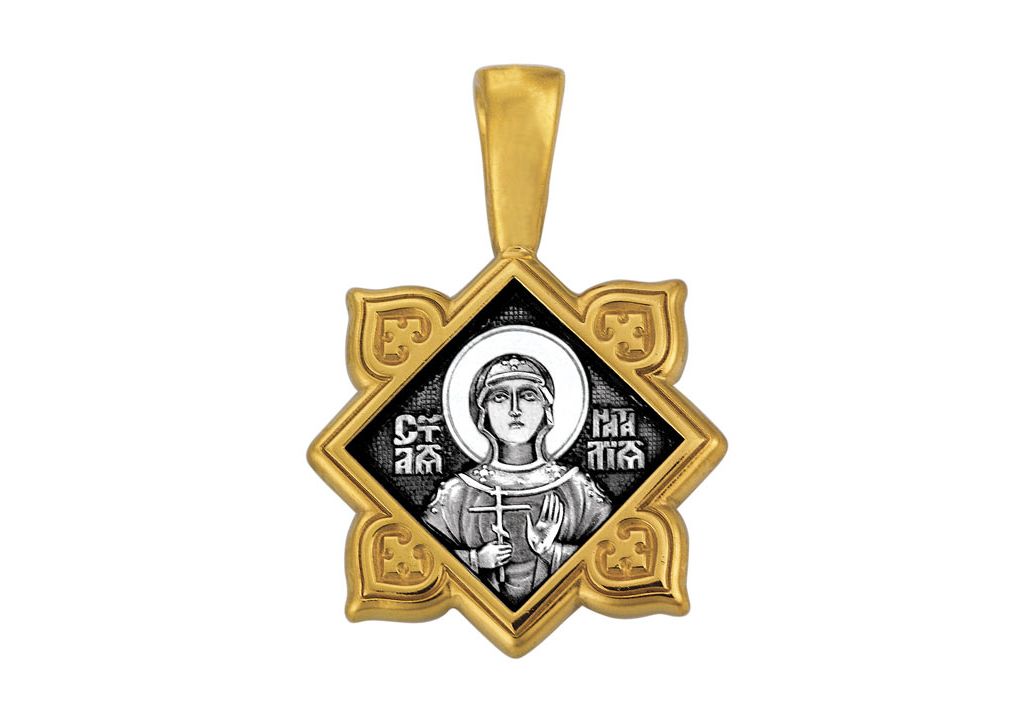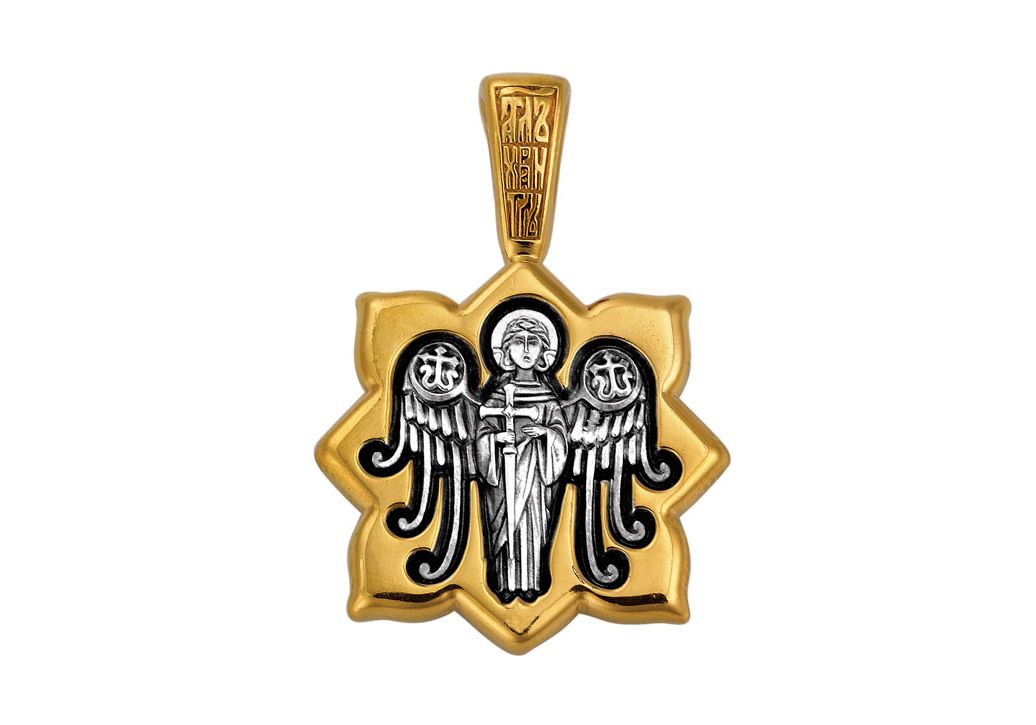St. Natalia, Martyress. Guardian Angel 102.130
91.95 $
Product description: Miniature relief Casting Gilding Niello Handwork
Metal type: Silver 925, Gold plated 999
Brand: Akimov Jewerly
Average weight: 5.00 gramm
Sizes: 2,5 * 1,7 * 0,2 mm
St. Natalia, Martyress and her spouse Adrian were both born into wealthy and noble families. They were married when being very young, but their wedlock lasted a year only. The couple lived in Nicomedia of Vithinia, the capital of emperor Maximian (305-311), in days when Christians were persecuted in the most severe way.
Maximian promised an award for those who gave Christians away and brought them to court. Denunciations started, and by one of them 23 Christians were taken, who hid in a cave near Nicomedia. They were tormented, made to bow to idols and then were taken to the appellate court for their names and replies to be fixed. Adrian who headed the appellate court was struck up to depth of his soul, observing the courage of people who withstood their sufferings for belief, fearlessly and firmly professing Christ.
“Martyr” is a “witness” in Greek, and not an idle one but preaching the truth discovered to him (her). And by his sudden conversion into Christianity St. Adrian, as well as many other heathens confirmed the power of martyr preaching. Due to martyrs the world, which lost its faith in anything saw: religion might be of such importance for one that even one’s life might be sacrificed to it. Without resorting to any argument they offered their blood instead of proving the truth that was evident for them, which they were certain about.
Adrian asked the martyrs: “What award are you waiting for from your God for your sufferings?”. The common answer was: “Such as we are unable to describe, your mind being unable to comprehend”. Adrian was so invigorated by the reply that asked the scrivener to sign him up for Christians, and declared his complete readiness to die for Christ. The Emperor tried to reason Adrian, but he stood his guns. Then Maximian ordered his clerk be imprisoned.
When Adrian’s wife, St. Natalia learned of her husband to suffer for Christ she was very glad, being a secret Christian. She hurried to the dungeon where she supported Adrian and in every possible way prepared him for the death of a martyr. When the execution day was announced Adrian was let off home in the hope of young man coming to reason. But St. Natalia decided that her husband repudiated Christ, and being sorrowful even did not want to let him in, until he convinced her that he had not run away of sufferings, but come to inform her of the data thereof.
St. Adrian was tormented in the cruelest way. The Emperor advised him to take pity on himself, and to appeal to gods, but his faithful and staunch wife was beside the martyr. She kept supporting her husband, and asked him to pray to God for her not being forced to marry a heathen after his death. At last the Emperor ordered to quarter the martyrs, their hands and feet having been beat off on an anvil. St. Natalia asked executioners to start from him, fearing for his spirit might have been shaken.
It was to burn the bodies of martyrs after their death, but a heavy thunderstorm began and extinguished the fire. Many executioners were struck instantly dead by a fulgent stroke.
St. Natalia possessed her spouse hand and kept it in her house. She decided to finish her days in voluntary solitary seclusion. But soon a captain asked the emperor permission to marry the young and rich widow. The holy woman escaped to Byzantium where her husband came to her in dream and ppromised that the Lord would soon rest her soul. Bloodless sufferer exhausted with her soul sufferings soon departed into the Lord, indeed.
Sts. Adrian and Natalia, Martyrs are commemorated on September 8 (August 26).


